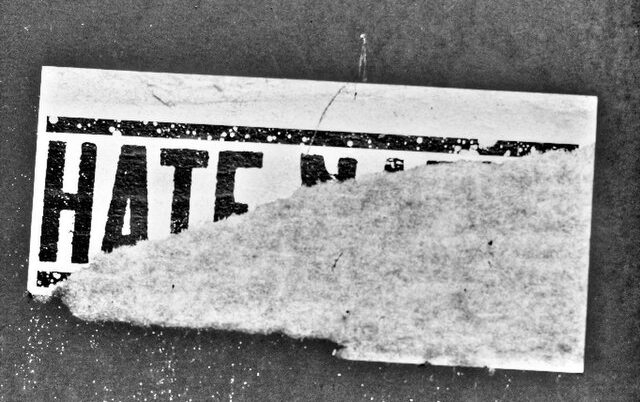Serbia at the Crossroads
On November 1, at eight minutes to noon, the roof of the renovated railway station in the second largest city of Serbia collapsed, killing fifteen people, while two people are still fighting for their lives. This tragedy was the trigger for mass protests across the country, and many see it as a direct consequence of the incompetence and corruption of the government, which has been embroiled in scandal for twelve years.
The railway station in Novi Sad opened on July 5 after a comprehensive reconstruction in the presence of the highest state officials. The contractor was the Chinese consortium CRIC&CCCC (“China Railway International Co. Ltd” and “China Communications Construction Company Ltd”), and 65 million euros were allocated to the reconstruction budget. Although the government tried to delete all available data about the project from public records immediately after the tragedy, it has been shown that the roof was included in the project.
For a small but powerful silver lining, see: Dan Carlin – How Crises and Corruption Can Lead to Change
Corruption is an integral part of almost every contract signed by the state, especially in the field of infrastructure. Often, contracts are signed with astronomical figures, most of which end up in the pockets of government officials, all at the expense of the quality of construction (e.g. using cheaper materials than foreseen in the project). Partners in such contracts are usually either domestic, private companies close to people at the top or companies linked to foreign regimes such as China, Russia and other non-democratic systems.
What’s in the background?
President Aleksandar Vučić, with a group of his loyalists from the ranks of the Serbian Progressive Party, has usurped all branches of government in Serbia and, for the past twelve years, has been continuously working to exterminate pluralism, democratic values, and fundamental human rights.
Vučić started building his political career in the 1990s as one of the preeminent members of the notorious anti-Western Serbian Radical Party, whose members were often on the bench of the Hague Tribunal for crimes committed during the wars in Yugoslavia. In the last two years of Former President Slobodan Milošević’s regime, he was the Minister of Information under which the draconian Law on Information was passed, which served as a cover for the closure of all “unfit” media outlets.
It was a period of numerous politically motivated murders of journalists and opposition activists. After the October 5th Revolution of 2000, which brought democratic changes in Serbia, Vučić continued his political career as vice-president of the “Radicals” and in 2008, with some party colleagues, he founded the Serbian Progressive Party (SNS).
Compared to the radicals, the SNS had a more moderate domestic and foreign policy — at first sight. But despite his self-proclaimed pro-European commitment in the recent past, Vučić remains a Russophile at heart and an autocrat who will stop at nothing to retain power in the country.
Vučić tried his hand first as Minister of Defense, then in two terms as Prime Minister. In 2017, he was elected President of Serbia.
Since coming to power, SNS has done much to establish control over the Serbian media. The lack of independent informing channels and the stifling of freedom of speech created a foundation for Vučić’s propaganda machinery, which played a key role in recent election campaigns. All elections and pre-election campaigns since 2014 have been marked by demonizing opposition members, vote purchasing, and electoral irregularities. Almost every election cycle has been followed by mass demonstrations against electoral theft, most of which have been quelled by excessive use of force by both the police and unidentified masked thugs (who are commonly used by the regime as its private army, operating outside the law).
New protests over the crime in Novi Sad
After the tragedy at the train station, disgruntled and grieving citizens began to gather — first in Novi Sad and then in Belgrade and other larger cities, calling for political and criminal responsibility for members of the republic and local authorities. The government tried in every possible way to do damage control, which caused even more anger among the people. After enormous pressure from the public and civil society, the Minister of Infrastructure, Goran Vesić and the Minister of Trade, Tomislav Momirović, resigned. Still, no one has been criminally prosecuted.
Not long after the tragedy, citizens started the “Stop Serbia” tribute to honor the victims, for fifteen minutes, every day in public places, as a metaphor for the fifteen people killed, at exactly 11:52 a.m. — the time when the canopy collapsed on passers-by.
After pro-government hooligans attacked students and professors of the Faculty of Dramatic Arts (FDU) in Belgrade on November 22, who were peacefully paying tribute to the victims, FDU students decided to suspend classes and block the faculty, calling on all other faculties in the country to do the same. Shortly thereafter, students from different faculties also decided to stop classes as a sign of protest, so more than forty faculties across the country are currently blocked. All of the University of Novi Sad and the University of Belgrade faculties joined the action, too. As things stand, the students are planning to spend Christmas and the New Year in the faculty buildings fighting for justice. Many faculties in other larger cities, such as Niš and Kragujevac, are also blocked.
Students have four requirements:
Publication of documentation concerning the reconstruction of the railway station in Novi Sad;
Dismissal of charges against those arrested and detained at protests;
Submission of criminal charges by the Ministry of Internal Affairs to the competent public prosecutor’s office in Belgrade against individuals who attacked students and professors;
Confirmation of the identity of the above-mentioned individuals and their further criminal prosecution by competent institutions.
The ruling party calls students and other protesters foreign mercenaries and traitors (read about anti-protesting laws HERE), using repressive measures against citizens who dare to express their dissatisfaction.
Many opposition activists were detained in the first days of the protests after the Novi Sad crime. They were beaten in custody; reports show that the police also detained a seventy-four-year-old participant of the protest, who was brutally beaten by police officers to the extent that he had to undergo the amputation of one of his testicles. The Serbian Progressive Party mobilized, among other things, hooligans with criminal records to break up protests across the country, using physical violence against the gathered citizens to intimidate them.
In the first decade of Aleksandar Vučić’s rule, Serbia began its transformation from a democratic to a hybrid regime, while in the second decade, the government in Serbia increasingly has begun to resemble that in Minsk and Moscow. Suppression of freedom of speech and freedom of the media, corruption, and regime violence against citizens have become everyday phenomena.
However, the current protests have given people hope. It raises the question: Do protests work? We’re about to find out.
Are you a student interested in getting involved in pro-liberty activism? By applying to join Students For Liberty’s Local Coordinator Program, you can be supported in promoting the ideas of liberty while also developing your skills and meeting many like-minded students from across the world. Click on the button below to find out more and get involved!
This piece solely expresses the opinion of the author and not necessarily the organization as a whole. Students For Liberty is committed to facilitating a broad dialogue for liberty, representing a variety of opinions. Photo is shot by Reuters





